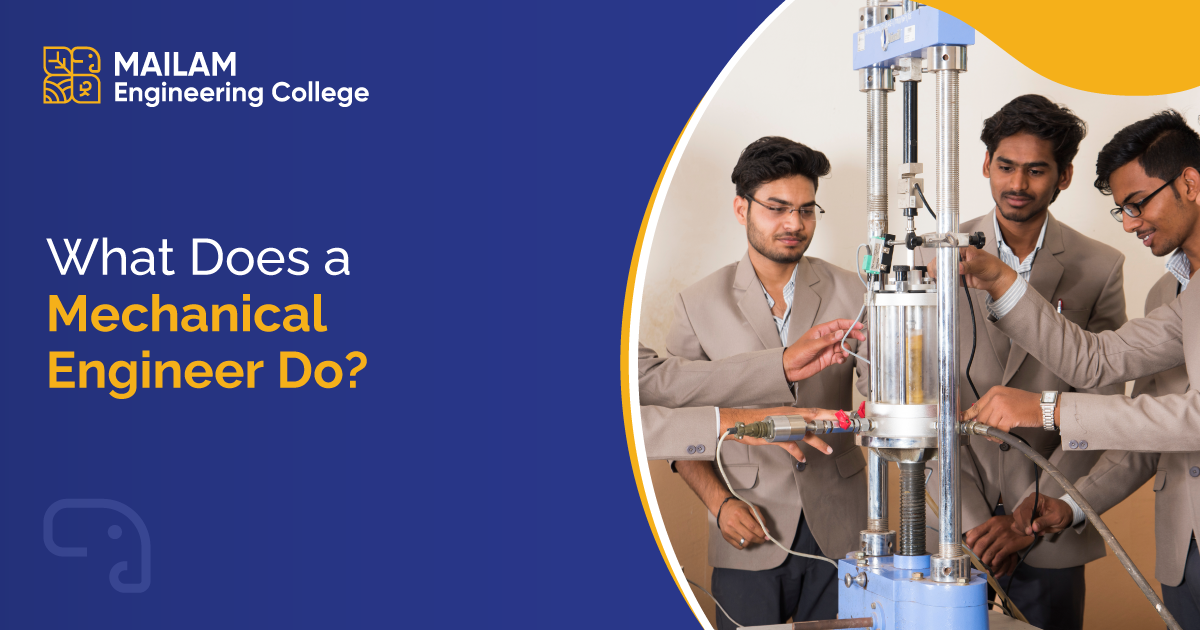Introduction
Mechanical engineering calls for hard work, time, commitment, and practical experience in the field. From understanding basic courses such as thermodynamics to participating in internships, mechanical engineering is full of challenges.
Why to choose mechanical engineering?
Mechanical engineering is indeed a field filled with numerous opportunities to provide solutions to designing, developing, and improving systems and processes. Due to its numerous employment opportunities, relatively good pay scale, and international affiliate companies, it is a preferred destination for students who wish to be engineers.
Core Areas of Mechanical Engineering
Mechanical engineering is fundamental for the manufacturing and automobile industries. Consider it a system with significant components. These components are crucial for a successful engineering design pattern or manufacturing industry. If components are not well designed or developed, the industry will experience some major drawbacks.
Below, you will learn why mechanical engineering is essential and why engineers should master this field.
- Thermodynamics
- Fluid Mechanics
- Mechanics of Materials
- Engineering Design
- Manufacturing Processes
- Thermodynamics: Understanding the purpose of heat transfer, energy conversion, and the laws of thermodynamics and why is essential for developing energy-efficient systems in industry.
- Fluid Mechanics: This area, which majorly focuses on the behavior of fluids (liquids and gasses) and their interactions with solid boundaries, is crucial for applications in hydraulics, aerodynamics, and more component case studies.
- Mechanics of Materials: Studying the concept of mechanism of materials under various forces , dynamics, process and conditions. This allows engineers to design safe and reliable structures. Identifying the proper materials will be crucial for the development phase.
- Engineering Design: Mechanical engineers use design principles, mechanisms, dynamic concept and computer-aided design (CAD) tools like software to create and analyse mechanical components and systems.
- Manufacturing Processes: As a mechanical engineer, understanding and finding different manufacturing techniques, design patterns and methodologies is vital for producing high-quality products efficiently.
Top 8 Skills Required for Success in Mechanical Engineering
1. Master Core Subjects
The foundation of mechanical engineering lies in understanding core subjects such as The foundation of mechanical engineering lies in understanding core subjects such as:
- Thermodynamics
- Fluid Mechanics
- Mechanics of Materials
- Engineering Design
These subjects are important to be taken early in the degree; this way you will establish a good technical ground.
2. Develop Strong Problem-Solving Skills
Most of the challenges that mechanical engineers deal with are complex. Regular workshops, design contests, and realistic tasks to hone your respective abilities. Moreover, students should participate in projects linked to the field with the aim of enriching practical problem-solving skills.
3. Opportunity to learn about Internships and Projects
It is an excellent point to emphasise that a mechanical engineering degree requires practical experience. Internships do not only increase the level of technical knowledge possessed by the intern but also increase employability.
4. Designs and Software.
IT software in mechanical engineering: AutoCAD software, Solid Works, MATLAB or any software for learning design is important. With the help of these tools as part of our curriculum, we can improve professional industry standards.
5. Research and Innovation.
Tech world upskilling plays a crucial role in that mechanical engineering is an ever-evolving profession and there are always innovations. Become involved in projects or in innovation contests. To explore and be ahead in the current fast-developing research work.
6. Soft skills.
Professional engineers usually practice their trades through organisations, and they have to cooperate with other professionals. Boost your organisational and interpersonal skills with group assignments and projects, as well as communication skills. Professionals should develop such soft skills as communication, leadership and decision-making.
7. Upgrade with current trends in your Field
Mechanical engineering being one of the broad fields of specialisation has new technological advancements and practices keep incorporating into it on a regular basis. What key issues, changes, and new developments are relevant to the industry.
8. Understand the Fundamentals
Knowledge of basic matter and fundamental concepts in physics, mathematics, and engineering principles is crucial. Focus on developing a solid foundation in these subjects, as they are the major section for more advanced topics in mechanical engineering.
Benefits of Pursuing Mechanical Engineering
1. Innovative Impact: When it comes to the design of systems that transform industries and enhance our lives mechanically, engineers are at the front line.
2. Wide Range of Specialisations: There are a lot of options for fields like robotics, automation, automotive, aerospace engineering, and so many others, which make it flexible to choose a career.
3. Global Demand: The profession is in high demand across the globe, implying that one can practice at an international level and thus get experience across borders.
4. Job Security: The fact that engineering problems are ever-present makes for secure employment provisions for engineers.
5. Attractive Salary Packages: The demand for mechanical engineers is ever-increasing, and they are well-paid employees with good potential for salary increases and job promotions.
Career Opportunities in Mechanical Engineering
Mechanical engineering graduates have a high demand for career paths available to them. Opportunities include:
- Automotive Engineer
- Aerospace Engineer
- Manufacturing Engineer
- Mechanical Design Engineer
- Robotics Engineer
- Energy Systems Engineer
| Did you know?Indian Society of Mechanical Engineers (ISME) Madras aims to promote the development of mechanical engineering and machinery technology. By 2027, it will contribute significantly to industrial development by implementing the provisions of the Act on the establishment and operation of educational activities in order to contribute to the interests of society in general. |
Mailam Engineering College: Achievements
Mailam Engineering College is a designation for good education. We have over 25+ years of experience in the education sector. Our university rank is 244. Our placement record for 2024 is 95%; through campus, we placed 2500+ students in top MNCs like TCS, ZOHO, Wipro, MRF, CTS, etc. Our courses offer architecture, design, engineering, science, business, education, IT, and economy.
More than just an institution for students, we are creating new platforms for them to focus on and analyse society, such as some extracurricular activities like the Women’s Welfare Club, Rotaract, NSS, YRC, and club anniversary.
To get know more about our college achievements, which include admission, placements, facilities and Images of our institutions, labs, classrooms, and entire campus
Apart from other engineering colleges, we are unique and hold a special place in every family. Our programs make education affordable for every family throughout their children’s education years.
Apart from improving students’ skill development, we also create new study patterns for our students. Making them physically strong by playing sports like cricket, football and badminton
Our achievement records are not limited. To know more about our college details, kindly visit our website or campus.
How we support students
Alumni Mentorship Programmes: Tips from successful alums provide an understanding of career tracks and industry conditions.
Competitions and Clubs: Mailam encourages participation in engineering clubs and competitions, fostering teamwork, leadership, and creativity.
Skill Development Programmes: Soft skills and technical workshops help students improve communication, presentation, and project management skills critical in engineering roles.
Advanced Software Training: Training in CAD, CAM, and simulation software provides students with essential digital skills for modern engineering
Up-to-date: We help our students to follow industry publications like newsletters, blogs, and articles, or regularly monitor your dream company products and services and their technologies for their projects. Moreover, take online courses and join professional associations.
Individual projects: Work on personal projects to keep your skills up-to-date.
New era of robotics: Setting a new platform for robotics. We are training students to become more important in mechanical engineering, and they can perform complex tasks.
Strong foundation in fluid mechanics: Fluid mechanics is a core area of mechanical engineering, and students learn about its principles and practical applications.
Conclusion
Studying mechanical engineering is not easy, so joining, having organisation, and being proactive are very important. Engineering College has a vision and mission for our students to endeavor to be the leading choice for capable and potential students and to be renowned by companies as a foundation of unique engineers, entrepreneurs, and frontrunners for a successful future in this challenging profession. We stand ready to assist them with their job placement. By following the above guidelines, you can solve all the issues and start a successful career in mechanical engineering.
FAQs – Mechanical Engineering
What is mechanical engineering?
Mechanical engineering is one of the major branches of the engineering sector. That focuses on the design, analysis, manufacturing, and maintenance of mechanical systems and helps principles of physics and materials science.
What are the core subjects in mechanical engineering?
Core subjects include thermodynamics, fluid mechanics, mechanics of materials, engineering design, and manufacturing processes.
What career opportunities are available for mechanical engineers?
Mechanical engineers can pursue careers in various fields, including automotive, aerospace, manufacturing, robotics, and energy systems.
How does Mailam College support mechanical engineering students?
Mailam College provides experienced faculty, hands-on training, industry collaboration, and career guidance to ensure student success.
Why is mechanical engineering important?
Mechanical engineering is crucial for developing innovative technologies, improving quality of life, and solving complex engineering problems across different industries.









